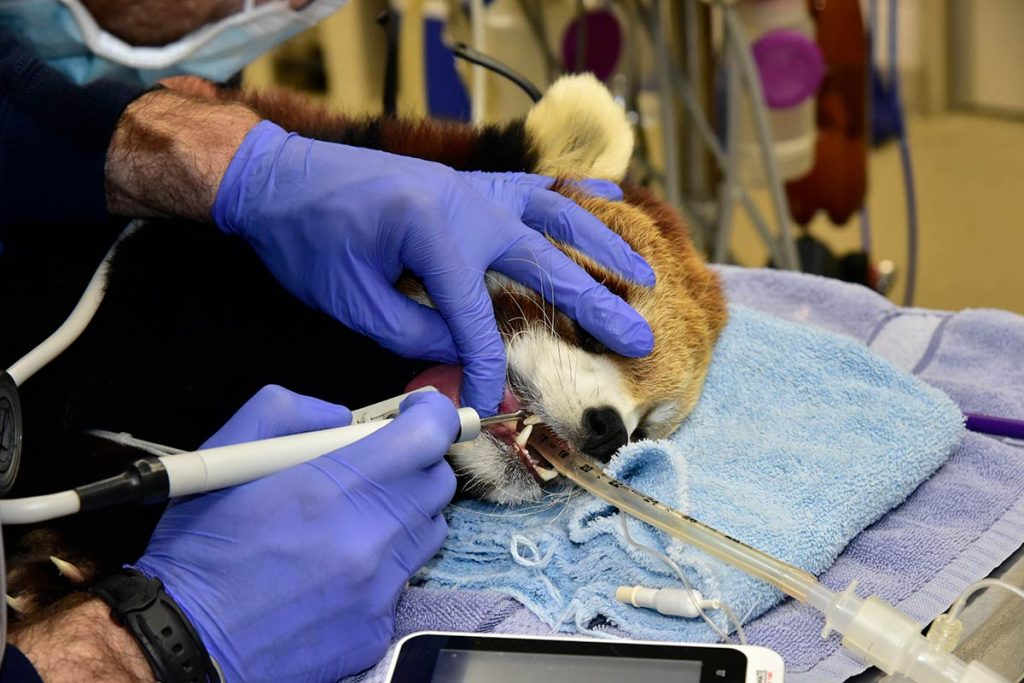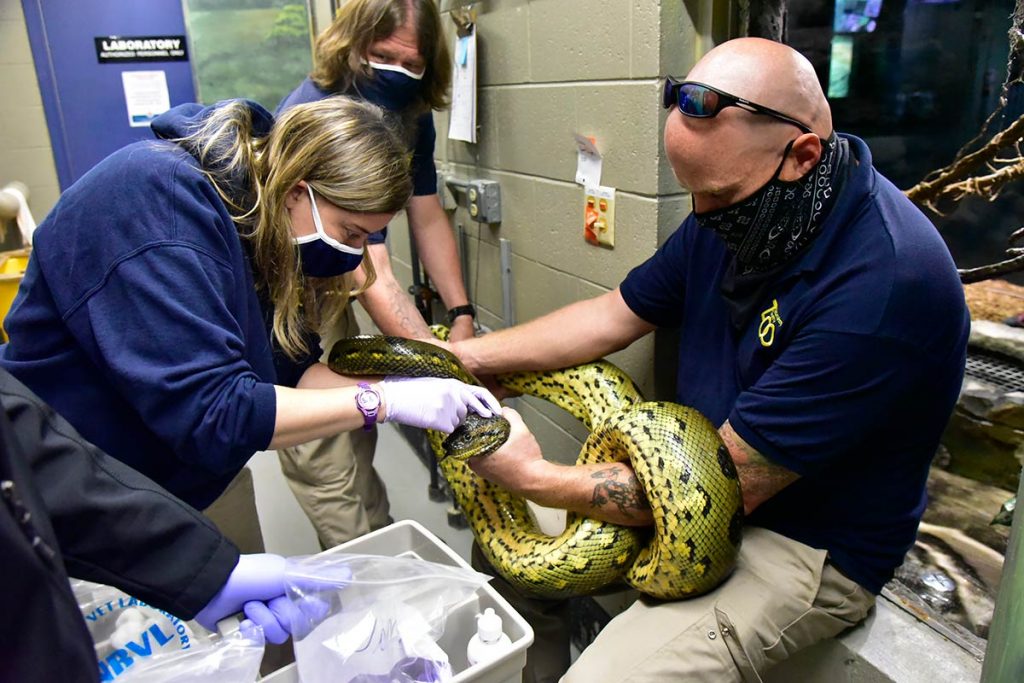Tending to the animals’ physical health and overall well-being is a full-time job by a full staff. Our animal care program involves everyone from zookeepers to veterinarians. And it doesn’t stop there!
The Animal Health Center (AHC) staff’s goal is to improve animals’ lives by keeping them healthy and active. The focus is preventive medicine to avoid illness and ensure healthy habitats and environments. Many animals are housed here throughout the year — either in quarantine or for treatment.
As a renowned zoological medicine training hospital, AHC programs include a 1-month externship for fourth-year veterinary students and a 3-year Zoological Medicine residency, which trains veterinarians in the zoo and exotic animal medicine field.

AZA-accredited zoos keep up-to-date records for each animal, from birth to death. The registrar manages the database, overseeing the sharing and use of the data.
Information observed daily by the animal care staff is recorded in an electronic database, the Zoological Information Management System (ZIMS), the largest global animal management network. Thousands of entries are added annually to the database’s 10 million+ animals.

The Association of Zoos and Aquariums (AZA) defines animal enrichment as “a dynamic process for enhancing animal environments within the context of the animals’ behavioral biology and natural history. Environmental changes are made with the goal of increasing the animal’s behavioral choices and drawing out their species-appropriate behaviors, thus enhancing animal welfare.”
We are committed to providing an Enrichment Program that addresses both the physical and psychological needs of each animal in our population. Our program also aims to reduce stereotypical behaviors, improve the success of captive breeding programs, and provide an educational experience for Zoo visitors. We have an internal enrichment committee that works hard to ensure a successful program.
Our Enrichment Program is comprised of five different focus areas:
You can be part of our Enrichment Program by supporting our often-updated Amazon Wish List. We have needs for almost every animal, so you can even support your favorites.
Animal care professionals at MCZ contribute to a diverse portfolio of conservation, research, and reproduction programs at local, national, and international levels. Our collaborations with other conservation-focused organizations are of significance. They bring strength and stability to the programs, as well as to the conservation community as a whole.
Significant funding comes from Zoo trust funds, the Zoological Society, and from Zoo guests who opt to “Round Up for Conservation” at Zoo cash registers.
The Zoo also provides funding and/or staff support to selected conservation initiatives and research projects.
© 2025 Milwaukee County Zoo. All Rights Reserved | Privacy Policy